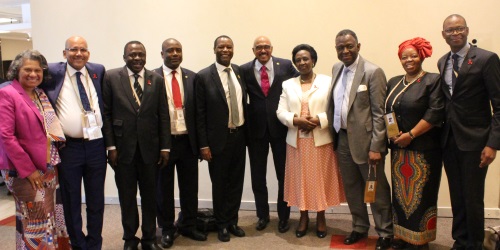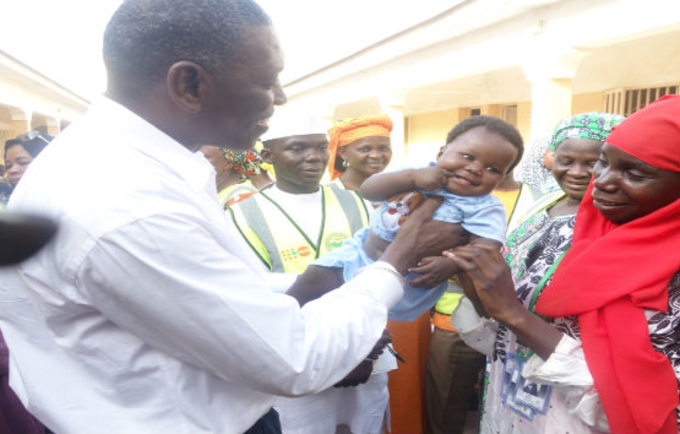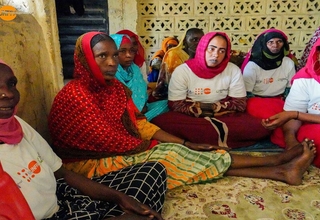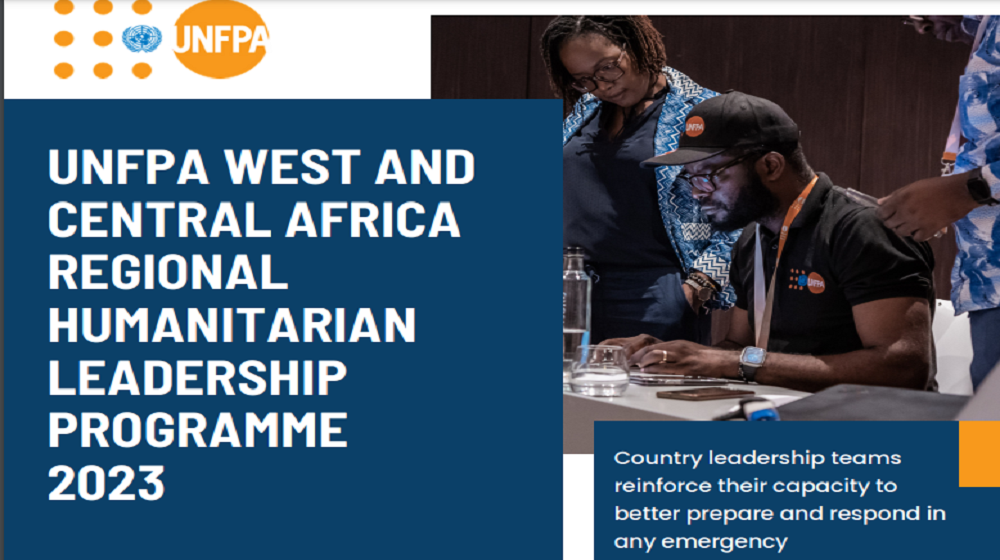Yola, May 18, 2015 - After the trauma of being forcefully captured from their homes, starved almost to death and violently abused by their abductors, victims of the Boko Haram insurgency begin the process of healing through psychosocial support provided by UNFPA, the United Nations Population Fund, in partnership with the Japanese Government.
The Nigerian Military in the past weeks has rescued hundreds of women and children from the Sambisa Forest, in Borno State, a former stronghold of the insurgency group. A total of 275 victims were transferred to Malkohi camp, in Yola, Adamawa State.
Now a free woman, Zainab Danfu tells her story. “I remember hearing gunshots and feeling afraid. I ran to save my life and that of my six children but I was not fast enough”. In the midst of the chaos she remembers the gun men saying “we are looking for your men, do not run” but she recounts running nonetheless and being captured by the insurgent group and led to Gwoza community, after which she was taken to Sambisa Forest along with other victims.
Zainab was in her trimester at the time she was kidnapped “I lost my baby” she said as she wiped her tears with the back of her palm, “but I had to remain strong for the others”.
Zainab Danfu is one of the groups of women receiving psychosocial support in the camp. When asked about her countenance towards her captors, she says she cannot forget what has been done to her but she hopes to overcome the anger and hurt she feels.
“Many of the women undergoing counseling have suffered some excruciating loss” says Chris Sebum, a psychosocial specialist with UNFPA. The counseling we provide is a psychological first aid to promote their sense of safety, to restore their hope and begin the process of healing.
A grim picture of this loss for example, is reflected in the story of Fatima Usane, a 27 year old mother of three who watched her husband killed and her three children taken away from her. Like Zainab she was pregnant but providentially, she had a safe delivery. However, the uncertainty and fear that her 3 missing children are dead has limited her joy and has had a negative setback on her physical and mental health.
When victims go through trauma, they are often affected on 5 levels, Physical, Social, Emotional, Intellectual and Spiritual. UNFPA together with the Japanese government is in the process of rehabilitating the women in a holistic and comprehensive manner, engaging them on levels of psychosocial support (PSS), except the spiritual level.

Ms. Ratidzai Ndhlovu, the Representative to UNFPA in Nigeria said “We respond to their physical needs by the provision of dignity and reproductive Health kits and support medical costs of pregnant women; the social, emotional and intellectual needs are addressed by a combination of PSS activities such as, groups and individual counselling, psycho-education, psychiatric referral and the provision of culturally appropriate dresses to all the women and girls to replace the torn and shabby dresses they wore for months throughout their captivity.
The Regional Director of UNFPA for West and Central Africa based in Dakar, Mr. Mabingue Ngom, went to Yola to show the solidarity of the entire organization with the rescued women. “UNFPA is committed to you, to your health and state of being. We will not stop, neither will we rest until your needs are met, your health is restored and your hope is strengthened. You are not alone”, he told them while in the camp.



